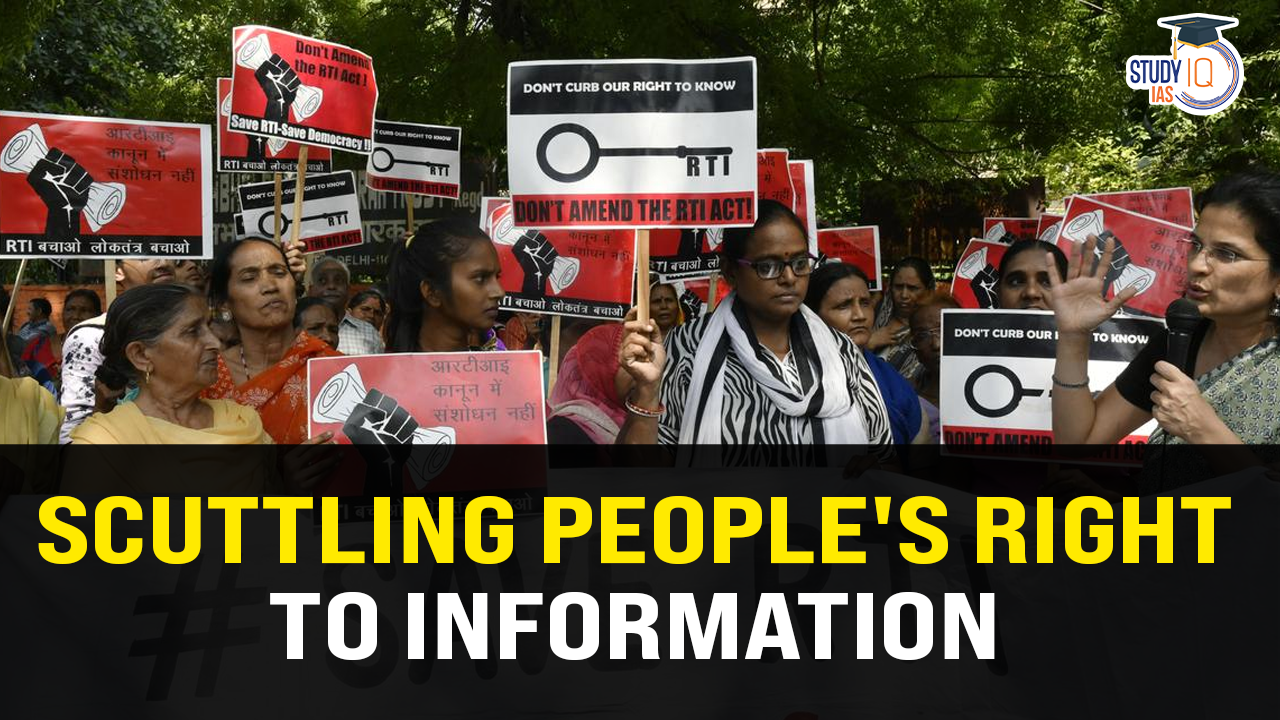Table of Contents
People’s Right to Information: Introduction
- The Right to Information (RTI) Act, 2005 has empowered Indian citizens by exposing corruption and promoting transparency in governance.
- Every year, around 6 million RTI applications are filed in India, showing its importance in promoting accountability.
- The RTI law plays a key role in redistributing power in India’s democracy and transforming the relationship between citizens and the government.
Backlogs and Vacancies in Information Commissions
- Defunct Commissions: A report by Satark Nagrik Sangathan reveals that seven out of 29 information commissions were non-functional for various periods in the last year. Notably:
- Jharkhand: Defunct for over 4 years.
- Tripura: Defunct for 3 years.
- Telangana: Defunct for one and a half years.
- Vacancies: Many commissions operate with inadequate staffing.
- For instance:
- Maharashtra Information Commission: Headless with over 100,000 pending appeals and complaints; six out of eleven commissioner posts are vacant.
- Central Information Commission: Eight out of eleven posts remain unfilled despite Supreme Court directives.
- Pending Appeals: Over 400,000 appeals and complaints are pending across India’s information commissions. In some states like Chhattisgarh and Bihar, new appeals may not be resolved until 2029.
- For instance:
Lack of Enforcement and Political Influence
- A significant number of appointments to information commissions are retired government officials or individuals with political connections, who are often hesitant to enforce the RTI law.
- The report reveals that commissions failed to impose penalties in 95% of cases where they were warranted, undermining the law’s effectiveness.
- This laxity promotes impunity, leads to unanswered applications or delayed refusals, and frustrates citizens seeking information at high personal costs.
Regressive Amendments to the RTI Act
- In 2019, amendments to the RTI Act reduced the autonomy of information commissions by allowing the Central government to control commissioners’ tenure, salaries, and pensions, despite opposition from civil society and political parties.
- The Digital Personal Data Protection (DPDP) Act, 2023 further weakened the RTI Act by exempting all personal information from disclosure:
- Previously, personal information could be withheld only if unrelated to public activity, posed an invasion of privacy, or had no public interest. The DPDP Act expands these exemptions.
- A crucial provision giving citizens the right to information equal to MPs and MLAs was deleted.
Dangers for RTI Activists
- According to Transparency International India, around 100 people have been killed for using the RTI Act, and thousands more have been assaulted, threatened, or implicated in false cases.
- The Whistleblowers Protection Act, 2014, remains non-operational because the Central government has not formulated the necessary rules to implement it.


 Defence Acquisition Council (DAC): Role,...
Defence Acquisition Council (DAC): Role,...
 Alternate Wetting and Drying (AWD): A Cl...
Alternate Wetting and Drying (AWD): A Cl...
 Makaravilakku Festival: Significance, Ri...
Makaravilakku Festival: Significance, Ri...

























